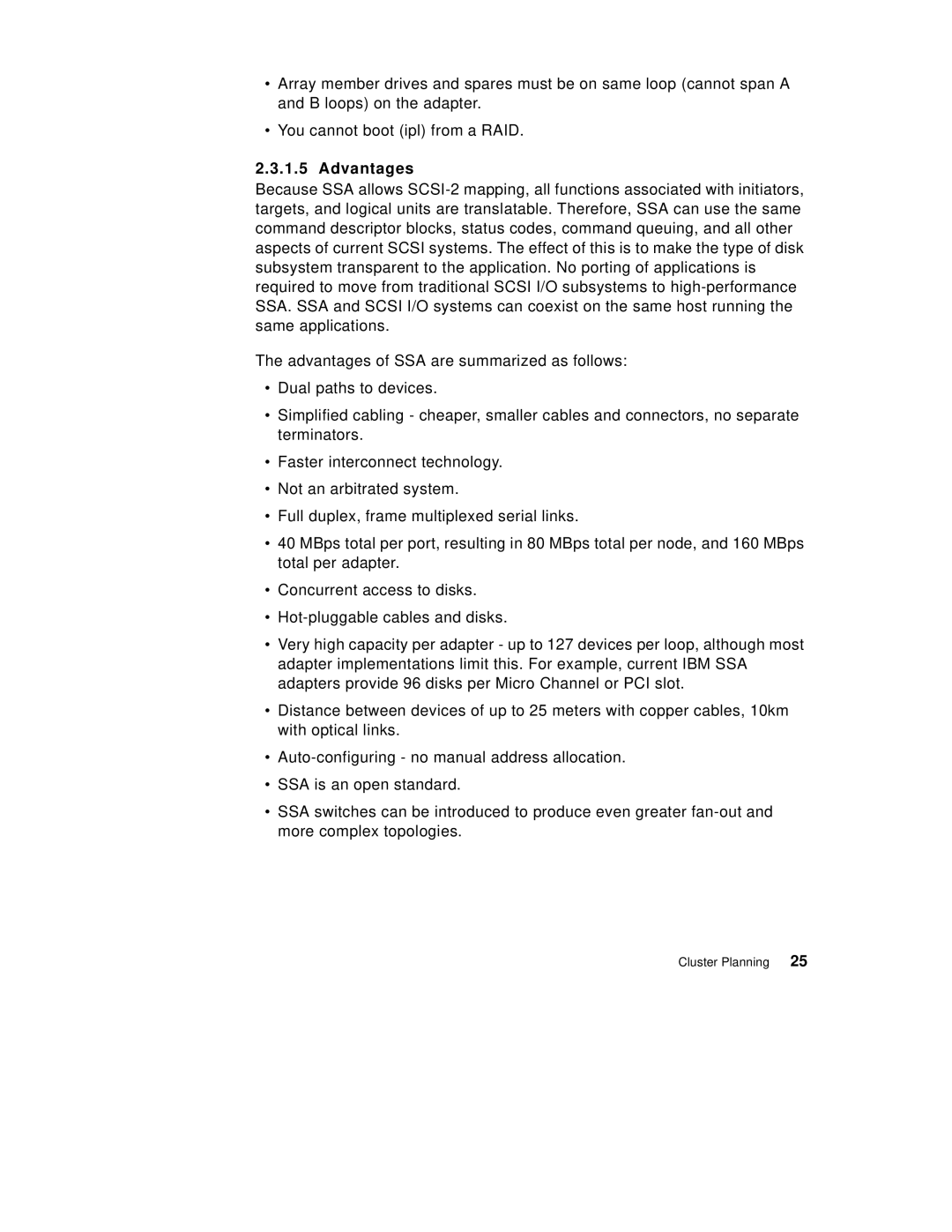•Array member drives and spares must be on same loop (cannot span A and B loops) on the adapter.
•You cannot boot (ipl) from a RAID.
2.3.1.5 Advantages
Because SSA allows
The advantages of SSA are summarized as follows:
•Dual paths to devices.
•Simplified cabling - cheaper, smaller cables and connectors, no separate terminators.
•Faster interconnect technology.
•Not an arbitrated system.
•Full duplex, frame multiplexed serial links.
•40 MBps total per port, resulting in 80 MBps total per node, and 160 MBps total per adapter.
•Concurrent access to disks.
•
•Very high capacity per adapter - up to 127 devices per loop, although most adapter implementations limit this. For example, current IBM SSA adapters provide 96 disks per Micro Channel or PCI slot.
•Distance between devices of up to 25 meters with copper cables, 10km with optical links.
•
•SSA is an open standard.
•SSA switches can be introduced to produce even greater
